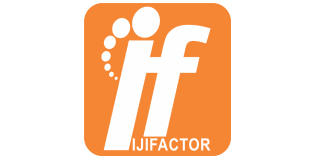Abstract
To formulate efficient and articulated future cocoa policy prescriptions, and ensure the continuous contribution of the subsector to poverty reduction, income generation and growth of Africa’s agricultural sector, the present research empirically examined the global competitiveness of Africa’s cocoa export during the spanning period of 2000-2013. The used dated data were sourced from FAO and UNCTAD databases. Export trends and indices of the revealed comparative advantage, as well as Trade Mapping (TM), were examined for cocoa beans, cocoa butter, cocoa paste and cocoa powder/cake. Empirical findings showed that Africa has only revealed comparative and competitive advantages in the exportation of cocoa primary product and disadvantage in the comparative and competitive status in the exportation of its secondary cocoa products. Furthermore, Africa is among the winner group with it controlling a large chunk of the market despite the decline in the export market of cocoa during the studied period. Hence, in order to enhance Africa’s relative comparative and competitive advantages in the exportation of cocoa products and its continuing presence in the world markets, Africa should improve on the quality of its cocoa products keeping in-view the best marketing grade and standardization for cocoa products in the global market. Also, Africa should invest more in post-harvest technologies to have a breakthrough in the secondary sub-sectors of cocoa via value addition, thus increasing its global share in the market which in turn would enhance its foreign exchange earnings from the exportation of cocoa.
Permalink
Keywords
Competitiveness; Comparative; Cocoa products; Export; Africa
Author Affiliations
Sadiq M S1, Singh I P2, Lawal M3, Danjuma B4
1 Department of Agricultural Economics, SKRAU, Bikaner, India
2 Department of Agricultural Economics, FUT, Minna, Nigeria
3 Department of Agricultural Education, Federal College of Education Katsina, Nigeria
4 Department of Economics, UNIJOS, Jos, Nigeria
Dates
February 2019
Volume 5
No. 1



